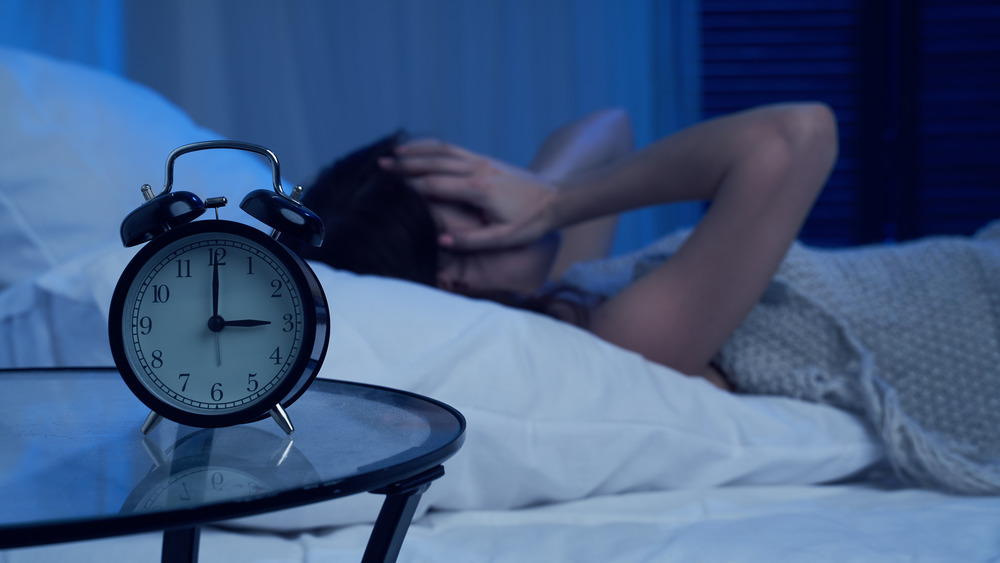What It Really Means When You Keep Waking Up At 3:00 A.M.
Waking up in the night is a frustrating but common occurrence. In fact, most people will wake up briefly multiple times each night, according to Healthline. It's usually such a short interval of wakefulness that we don't even remember it, nor does it disrupt our rest. But what's going on when you keep waking up at the same time each night? Is it anything to be concerned about?
For most people, regular nighttime wakening is simply related to their sleep cycle. There are four stages of sleep: transitioning into sleep, light sleep, deep sleep, and REM sleep. Each phase tends to have a similar length night after night.
During light sleep, you're more likely to wake up in response to discomfort, noises, light, or other stimulating events, according to Wexner Medical Center at Ohio State University. One reason you might routinely see 3:00 a.m. on the clock dial is because you go to bed at the same time, and reach light sleep at the same time each night.
Here's when to consult a doctor
If you find it hard to fall back to sleep, or wake in the morning feeling unrested, a few other factors should be considered. You could have a medical issue, like an overactive thyroid or sleep apnea, that needs to be investigated with your doctor, according to SELF. Or you could be engaging in lifestyle habits that interrupt sleep, like drinking alcohol or caffeine too close to bedtime.
Stress can also be a major contributor to middle-of-the-night awakening. Alexa Kane, PsyD, told The Cleveland Clinic that daytime stress can have significant physical effects even during the night. "If you wake up and begin to experience worry, anxiety, or frustration, you likely have activated your sympathetic nervous system, your 'fight-or-flight' system," she said. "When this happens, your brain switches from sleep mode to wake mode. Your mind may start to race, and your heart rate and blood pressure may go up."
Give yourself 15 to 20 minutes to fall back to sleep and then get out of bed and do something relaxing like reading or meditation, Kane advises.
Ultimately, try not to worry too much about seeing a particular spot on the clock dial on a regular basis. As long as you're able to fall back asleep, and regularly get enough sleep to feel good, you're doing just fine.

